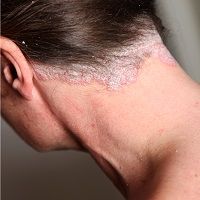Article
Atopic Dermatitis Symptoms, Quality of Life Positively Affected by Online Mindfulness Training
Author(s):
New research shows that mental health, life quality, and symptoms of eczema may all be improved through self-compassion and online mindfulness training that is both scalable and accessible to many.

Quality of life, atopic dermatitis symptoms, and psychological well-being all may be improved through online mindfulness and self-compassion training for atopic dermatitis patients, according to recent findings.1
These findings came following a recent review that found eczema patients given cognitive behavioral therapy alongside dermatologic care saw greater benefits than those only given the standard-of-care treatment.2
Studies like these, which highlighted the value of psychological interventions, led to this new study into an online training with a focus in this area. The research was authored by Sanae Kishimoto, MHS, MPH, from the School of Public Health’s Department of Health Promotion and Human Behavior at the Graduate School of Medicine in Kyoto University.
“We hypothesized that the intervention would improve the skin disease–specific QOL and reduce patient-reported AD severity and other symptoms,” Kishimoto and colleagues wrote. “To our knowledge, this is the first study to examine the efficacy of an online group mindfulness and self-compassion–integrated intervention for adults diagnosed with AD.”
Background and Findings
From March 2019 through October 2022, the investigators conducted the randomized clinical trial and included adult participants with atopic dermatitis who also had a Dermatology Life Quality Index (DLQI) score greater than 6. This score indicates moderate or greater impairment as a result of the condition.
Multiple outpatient institutes in Japan and the study's social media outlets and website were used by the research team to recruit the participants. The investigators involved 2 groups: 1 which received eight 90-minute weekly group sessions of online mindfulness and self-compassion training, and the other which was put on a waiting list.
The training involved a program consisting of 8 weekly online sessions that took 90 minutes to complete. In addition, study participants were given the option to attend a 5.5-hour meditation retreat and a 120-minute Zoom video conferencing booster session.
The investigators conducted the sessions online at the same day and time every week. Additionally, participants were given the choice to attend the silent meditation retreat either offline or online, but due to the COVID-19 pandemic, the retreat was only held online.
A licensed clinical psychologist with formal training and experience as a certified instructor in Mindfulness-Based Stress Reduction (MBSR) and Mindful Self-Compassion (MSC) led the interventions. The intervention manual was developed by the psychologist, and its quality was affirmed by a co-developer of MSC.
Patients in both study groups were permitted to receive their usual care as determined by their physicians, and the team allowed the participants in both arms of the study to receive any dermatologic treatment except dupilumab.
The study's primary outcome were determined to be change in DLQI scores from baseline to week 13, and secondary outcomes included eczema severity, self-compassion and its subscales, itch- and scratching-related visual analog scales, psychological symptoms, mindfulness, and adherence to clinician-advised treatments.
The investigators ended up enrolling 107 adults who were randomly assigned to either the intervention group (n=56) or the waiting list group (n=51). The mean age of all participants was reported to be 36.3 (SD=10.5) years, and 79.4% of the participants were female.
The research team noted that the average duration of atopic dermatitis was 26.6 (SD=11.7) years. Of those included in the intervention arm, 98.2% ended up attending 6 or more of the 8 sessions, and 98.1% of all participants completed the 13-week assessment.
At 13 weeks, the intervention group showed a significant improvement in the DLQI score compared to the waiting list group, with a between-group difference estimate of -6.34 (95% CI, -8.27 to -4.41; P<.001). They added that the standardized effect size (Cohen d) at 13 weeks was found to be -1.06 (95% CI, -1.39 to -0.74), and all of the team’s secondary outcomes showed greater improvements in the intervention arm than in the waiting list arm.
“In this randomized clinical trial of patients with AD, online mindfulness and self-compassion training in addition to usual care improved QOL, AD symptoms, and psychological well-being,” they wrote. “These findings suggest that mindfulness and self-compassion training is an effective treatment option for adults with AD.”
References
- Kishimoto S, Watanabe N, Yamamoto Y, et al. Efficacy of Integrated Online Mindfulness and Self-compassion Training for Adults With Atopic Dermatitis: A Randomized Clinical Trial. JAMA Dermatol. Published online May 10, 2023. doi:10.1001/jamadermatol.2023.0975.
- Revankar RR, Revankar NR, Balogh EA, Patel HA, Kaplan SG, Feldman SR. Cognitive behavior therapy as dermatological treatment: a narrative review. Int J Womens Dermatol. 2022;8(4):e068. doi:10.1097/JW9.0000000000000068.




